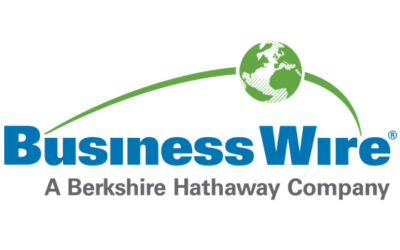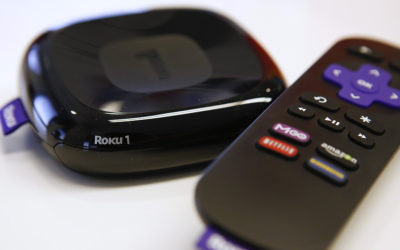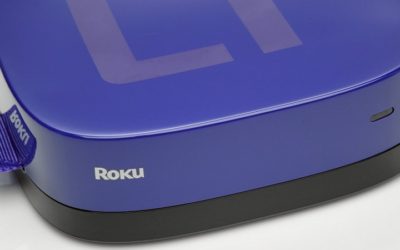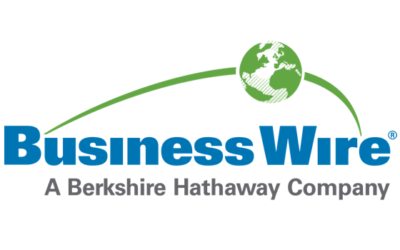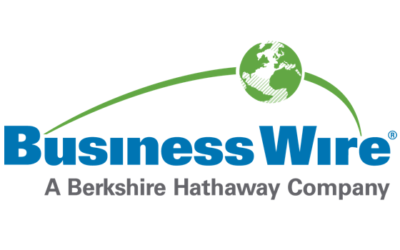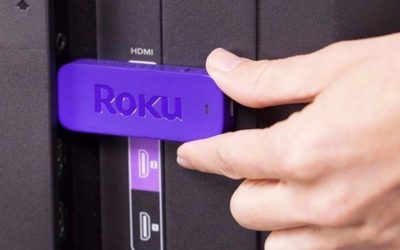Indonesia to see first local startup IPO next month
Indonesia to see first local startup IPO next month.
Of the US$3.1 million to US$3.4 million Kioson targets to raise, it will use 76 percent to acquire another business, Narindo, the firm’s representatives said at its investor briefing preceding the IPO which is scheduled for October 3.
The remaining funds will be used for operational costs.
Rural ecommerce Kioson runs a network of small shops where you can buy things online and pay bills through agents.
Narindo, the company Kioson plans to acquire, is a payments company providing “modern retail” solutions, according to its website.
It partners with mobile phone operators and ecommerce firms like Alibaba’s Lazada, Tokopedia, Blibli, and Indonesia’s two leading convenience store chains Indomaret and Alfamart are among its clients.
Kioson says it has 19,000 partner shops in 384 Indonesian cities.
The number of partners is expected to grow to 30,000 in the coming year.
Halim says the company targets to be profitable in 2018.
“The acquisition of Narindo will help our bottom line.” The IPO is underwritten by Sinarmas Securities.
FAT Brands Selects Nasdaq for Initial Public Offering via JOBS Act Regulation A+; Files Form 1-A
Brands Inc. (“FAT Brands” or the “Company”) announces it has selected Nasdaq Stock Market for the listing of its upcoming $24 million Regulation A+ initial public offering, subject to eligibility requirements.
FAT Brands has applied to list its common stock on the Nasdaq under the ticker symbol “FAT.” “Our Nasdaq listing will provide us with great visibility for the Company amongst potential shareholders, loyal followers and the general public, who will soon be able to play a direct role in our continued growth.” Tweet this TriPoint Global Equities, LLC, working with its online division BANQ® (www.banq.co), will act as the lead managing selling agent and sole book runner for the offering.
Brands FAT Brands is a leading global franchising company that strategically develops fast casual and casual dining restaurants around the world.
About Fatburger An all-American, Hollywood favorite, Fatburger is a fast casual restaurant serving big, juicy, tasty burgers, crafted specifically to each customer’s liking.
About Buffalo’s Cafe Founded in 1985 in Roswell, Georgia, the family themed casual dining chain, known for its world famous chicken wings and 13 unique homemade wing sauces, burgers, wraps, steaks and salads has been serving fresh southwestern themed cuisine for over 32 years.
About Buffalo’s Express Founded in 2012 in Los Angeles, CA, Buffalo’s Express is a fast casual chain known for its world famous chicken wings, proprietary wing sauces, fries, sides, wraps, salads and desserts.
Co-branded with 72 Fatburger restaurants to date, Buffalo’s Express’ significant growth can be attributed to its high quality menu offerings and unparalleled dining experience.
An offering statement on Form 1-A relating to these securities has been filed confidentially with the Securities and Exchange Commission but has not yet become qualified.
No securities may be sold, and no offer to buy securities can be accepted and no part of the purchase price can be received for an offering under Regulation A+ until an offering statement is qualified by the U.S. Securities and Exchange Commission, and any such offer may be withdrawn or revoked, without obligation or commitment of any kind, at any time before notice of its acceptance given after the qualification date.
An indication of interest made by a prospective investor in a Regulation A+ offering is non-binding and involves no obligation or commitment of any kind.
Turo raises $92M and acquires Daimler’s Croove car sharing business
Turo raises $92M and acquires Daimler’s Croove car sharing business.
The funding is part of a new $92 million Series D round raised by Turo, which was also led by South Korean giant SK Holdings, in addition to Daimler, and which includes participation from new investors Liberty Mutual Strategic Ventures and Founders Circle Capital, as well as from existing partners.
This investment includes a lot of new strategic tie-ups for Turo, which allows individual vehicle owners and small rental fleet operators to offer their cars up for short-term rentals by others.
SK Holdings has a number of sub-companies, including SK Telecom, with ties to the automotive industry, and they’ve also recently been investing heavily in new mobility brands.
These include SoCar, as well as leading short-term car rental services in other Southeast Asian manufacturers like Malaysia.
Croove, which launched in December last year, was a car-sharing business that Daimler fully owned, which launched in Germany initially.
“We had a lot of interest from a bunch of OEMs in this round, and we had great conversations with a lot of those OEMs,” explained Haddad.
We do believe that our platform Turo and peer-to-peer car sharing is fundamentally going to evolve car ownership and we believe that partnering with an OEM that has already expressed their deep interest and belief in this phenomenon by building their own business with Croove was a differentiator.” Once the investment in Turo by Daimler was agreed upon, Haddad says it made no sense for the automaker to continue to operate its own separate peer-to-peer car sharing business, hence the decision to put Croove in Turo’s hands.
As to why it went that way, when a lot of OEMs seem to be going in the other direction and acquiring younger mobility startups, Haddad says it’s about recognition on both sides of how the model works.
“For peer-to-peer car sharing to be really successful, it needs to be operated within an open platform where anyone can participate,” he said.
Snowflake’s newest cloud data warehouse takes aim at regulated industries
Snowflake, makers of a cloud data warehouse service, announced a new virtual private product that should appeal to highly regulated companies like financial services and healthcare.
In fact, the company also announced that one of the product’s earliest customers, Capital One, will be investing $5 million in Snowflake as a strategic investor as a result of this new approach.
Most Snowflake customers use the product in a multi-tenant cloud where users share resources across the service, but the new Virtual Private Snowflake (VPS) service gives customers a dedicated set of resources, says company CEO Bob Muglia.
“The key is that it’s dedicated.
In practice, that means each VPS customer gets a managed version of Snowflake inside a dedicated AWS Virtual Private Cloud instance.
As for the investment, Muglia says Capital One’s venture arm, Capital One Growth Venture Partners, took an interest as they were working with the credit card giant, and announced the investment this week after concluding the business side of the arrangement.
Their cloud-native solutions are fast,efficient, secure and help deliver the data-driven insights we need to streamline our operations, allowing us to focus on building great applications and experiences for our customers,” Capital One Growth Ventures partner, Venkatesh Seetharam said in a statement.
The investment is actually tacked onto the $100 million Series D round from April 2017 for a total of $105 million for those of you keeping track at home.
The company has over 750 customers and 270 employees, up from 175 in April when it announced the $100 million funding round.
Featured Image: Tatyana Tomsickova Photography/Getty Images
Turo raises $92M and acquires Daimler’s Croove car sharing business
Turo raises $92M and acquires Daimler’s Croove car sharing business.
The funding is part of a new $92 million Series D round raised by Turo, which was also led by South Korean giant SK Holdings, in addition to Daimler, and which includes participation from new investors Liberty Mutual Strategic Ventures and Founders Circle Capital, as well as from existing partners.
This investment includes a lot of new strategic tie-ups for Turo, which allows individual vehicle owners and small rental fleet operators to offer their cars up for short-term rentals by others.
SK Holdings has a number of sub-companies, including SK Telecom, with ties to the automotive industry, and they’ve also recently been investing heavily in new mobility brands.
These include SoCar, as well as leading short-term car rental services in other Southeast Asian manufacturers like Malaysia.
Croove, which launched in December last year, was a car-sharing business that Daimler fully owned, which launched in Germany initially.
“We had a lot of interest from a bunch of OEMs in this round, and we had great conversations with a lot of those OEMs,” explained Haddad.
We do believe that our platform Turo and peer-to-peer car sharing is fundamentally going to evolve car ownership and we believe that partnering with an OEM that has already expressed their deep interest and belief in this phenomenon by building their own business with Croove was a differentiator.” Once the investment in Turo by Daimler was agreed upon, Haddad says it made no sense for the automaker to continue to operate its own separate peer-to-peer car sharing business, hence the decision to put Croove in Turo’s hands.
As to why it went that way, when a lot of OEMs seem to be going in the other direction and acquiring younger mobility startups, Haddad says it’s about recognition on both sides of how the model works.
“For peer-to-peer car sharing to be really successful, it needs to be operated within an open platform where anyone can participate,” he said.
Roku IPO: 5 things to know about the streaming device company
Here’s what you need to know: How Roku makes money Roku essentially sells three things: its streaming hardware that works with TVs, advertising, and its partners’ content sold through its software.
According to the filing, for the first six months of 2017, the company’s hardware sales dipped 2% to $117.3 million from the year-earlier period.
Platform revenue, on the other hand, jumped 91% to $43.1 million for the same six-month period.
It has incurred losses every other quarter: The company’s net loss for the second quarter of 2017 widened to $15 million from $14 million in the year-earlier period, on sales of $99.6 million.
The Netflix legacy Netflix initially invested $5.7 million in Roku, but the company sold its stake for a pretax gain of $1.7 million in 2009, then-Chief Financial Officer Barry McCarthy said on the company’s fourth-quarter earnings call in 2010.
Netflix is responsible for a third of that traffic — nearly one hour a day — but Roku is unable to monetize that traffic like its other platform revenues.
Class A common stock, which is owned by executives, directors and several early investors, will have 10 votes for every one vote of the Class B stock, which is being offered to investors.
In Roku’s case, Chief Executive Anthony Wood currently has a 28.4% stake in the company, venture-capital firm Menlo Ventures has a 35% ownership, mutual-fund giant Fidelity Investments Inc. owns 12.9%, and 21st Century Fox Inc. FOX, -3.30% retains a 7% stake, among others.
Mexico sales ban The streaming company’s device sales ran into a problem in Mexico after hackers offered pirated content from HBO, ESPN and others through Roku devices.
In the second quarter of 2017, the company recorded a $1 million write-down of its inventory, and a charge of $700,000 for sales incentives to sell its device inventory through other sales channels.
Roku Plans to Raise $100 Million in Its IPO
Roku Plans to Raise $100 Million in Its IPO.
The digital media player maker publicly filed its S-1 with the Securities and Exchange Commission on Friday — the first big step for a company seeking an initial public offering (IPO) of its shares.
Although the company is losing money, its revenue is growing fast as cord-cutters and other consumers snap up its devices, the cheapest model of which sells for $30.
In the first half of 2017, Roku posted revenue of $199.7 million, up 23% from the same period in 2016, according to the S-1 filing.
Roku did not specify how many shares it planned to sell, or the price of the shares.
By contrast, shares sold in the public offering will give investors who own them one vote per share.
Billions of streaming hours As of June 30, Roku had 15.1 million active accounts on its service, according to the filing.
Currently, most of Roku’s revenue comes from the sale of the streaming devices, but the company plans to increase its number of active users and grow the amount of revenue per user.
About one third of the time the total hours that Roku users streamed video on its boxes last year was spent watching Netflix.
The Los Gatos, California, company has been rumored to be moving toward an IPO since July, when it hired Morgan Stanley and Citigroup as underwriters.
Identity management startup ForgeRock snags $88 million Series D
Identity management startup ForgeRock snags $88 million Series D. Used to be when we thought about identity as it relates to computers and software, it involved a person logging into an application or service.
Increasingly though, you also have machines and sensors attempting to authenticate as they access your systems.
ForgeRock, a seven year old identity startup says it has built an identity platform with those kinds of scale requirements in mind.
Today, the company announced an $88 million Series D investment round led by Accel with participation from KKR, Meritech Capital Partners and Foundation Capital.
Today’s investment brings the total to more than $140 million raised to-date.
CEO Mike Ellis sees his company’s approach to identity as a natural extension of what’s happening the industry.
“The relationships between humans, devices, things and services is driving security,” he says.
He believes it’s also driving new applications for identity and new business opportunities.
Ellis admits that his company has flown under the radar compared with better-known identity companies like Ping Identity, which was sold last year for $600 million to Vista Equity and Okta, which went public in May.
It currently has around 400 employees, but intends to add another 100-150 by the end of the year with the new capital.
Identity management startup ForgeRock snags $88 million Series D
Identity management startup ForgeRock snags $88 million Series D. Used to be when we thought about identity as it relates to computers and software, it involved a person logging into an application or service.
Increasingly though, you also have machines and sensors attempting to authenticate as they access your systems.
ForgeRock, a seven year old identity startup says it has built an identity platform with those kinds of scale requirements in mind.
Today, the company announced an $88 million Series D investment round led by Accel with participation from KKR, Meritech Capital Partners and Foundation Capital.
Today’s investment brings the total to more than $140 million raised to-date.
CEO Mike Ellis sees his company’s approach to identity as a natural extension of what’s happening the industry.
“The relationships between humans, devices, things and services is driving security,” he says.
He believes it’s also driving new applications for identity and new business opportunities.
Ellis admits that his company has flown under the radar compared with better-known identity companies like Ping Identity, which was sold last year for $600 million to Vista Equity and Okta, which went public in May.
It currently has around 400 employees, but intends to add another 100-150 by the end of the year with the new capital.
An ‘Angry Birds’ Empire: Games, Toys, Movies and Now an I.P.O.
An ‘Angry Birds’ Empire: Games, Toys, Movies and Now an I.P.O.. LONDON — “Angry Birds” is among the most popular smartphone games ever.
Rovio Entertainment, the Finnish maker of the “Angry Birds” games, said on Tuesday that it would go public in Helsinki.
Its feature film grossed around $350 million worldwide; a sequel is planned for release in September 2019, according to Rovio.
The announcement of the public offering marks a turnaround for a company that struggled financially in the years following the initial release of “Angry Birds.” Rovio, like other mobile gaming companies, found it difficult to diversify beyond its hit brand.
Mikael Hed, a co-founder, stepped down as its chief executive in 2014, and the company announced plans to cut nearly 40 percent of its work force the following year.
Rovio, which started out by selling its games, was caught out as consumers gravitated to companies offering games under a so-called freemium model, in which players download the game for free and pay for additional features.
Mr. Hed’s father, Kaj Hed, is the majority owner of Trema, which holds a nearly 69 percent stake in Rovio.
and listing are an important milestone in developing Rovio into an even stronger games-first entertainment company.” Rovio is the latest game maker to turn to the public markets after becoming a cultural phenomenon, following in the footsteps of the online gaming company Zynga and the mobile game developer King Digital Entertainment.
Zynga, the company behind FarmVille and Words with Friends, was valued at $7 billion when it went public in 2011, but its shares are now trading at about a third of the value of its initial public offering.
It sold at a discount to its initial listing price as it struggled to replicate the success of its biggest hit.
XA Investments Announces Commencement of Initial Public Offering of XAI Octagon Floating Rate & Alternative Income Term Trust (XFLT)
The Trust seeks attractive total return with an emphasis on income generation across multiple stages of the credit cycle by investing in a dynamically managed portfolio of opportunities primarily within the private credit markets.
“XFLT is the first of a series of distinctive, demand-driven alternative investment opportunities designed by XAI to provide investors access to institutional quality investment strategies managed by an industry recognized sub-adviser to achieve attractive portfolio outcomes” Tweet this As sub-adviser to the Trust, Octagon Credit Investors, LLC (“Octagon”) will be responsible for management of the Trust’s portfolio.
“XFLT is the first of a series of distinctive, demand-driven alternative investment opportunities designed by XAI to provide investors access to institutional quality investment strategies managed by an industry recognized sub-adviser to achieve attractive portfolio outcomes,” said Ted Brombach, Co-Chief Executive Officer of XAI and co-founding partner of XMS Capital Partners, LLC (“XMS”), XAI’s parent company.
About XMS XMS, established in 2006, is a global, independent, financial services firm providing M&A, corporate advisory and asset management services to clients.
Shares of closed-end investment companies frequently trade at a discount from their net asset value.
This is not an offer to sell these shares and is not soliciting an offer to buy these shares in any jurisdiction where the offer or sale is not permitted.
For a summary of the risks associated with an investment in the Trust please see the “Risks” section of the preliminary prospectus.
Forward-looking statements include, among other things, projections, estimates and information about possible or future results related to the Trust, market or regulatory developments.
The views expressed herein are for informational purposes only and are not guarantees of future performance or economic results and involve certain risks, uncertainties and assumptions that could cause actual outcomes and results to differ materially from the views expressed herein.
The views expressed herein (including any forward-looking statement) may not be relied upon as investment advice or as an indication of the Trust’s trading intent.
Aifloo, a Swedish startup that sells a ‘smart wristband’ to help care for the elderly, raises €5.1M
Aifloo, a Swedish startup that combines hardware sensors and AI to offer a ‘smart wristband’ to help care for the elderly, has raised €5.1 million in new funding.
The Series A round is led by EQT Ventures, with the VC firm’s Analytics Partner, Henrik Landgren, citing the team and technology as reasons to invest, noting that the e-health company is marrying “vast amounts of data and modern AI” to help elderly people remain living independently for longer.
These are cited as things like trips or falls, alterations in eating habits, and changes in sleep behaviour.
“We help seniors to keep going strong, give peace of mind to family and friends and augment the care delivered by professional caregivers”.
The idea, says the Aifloo founder, is to “digitalize detection of human behaviour in a non-intrusive way”.
Specifically, the Aifloo wristband is conceived as a discreet wearable with a long battery life, whilst the real-time cloud AI-analysis does the heavy lifting.
“The service measures trends over time, detects emergencies and alerts people of a problem even if you’re unable to,” he says.
“We hope to help carers deliver the right care, at the right time, to those who need it the most, with a little help from technology”.
That, argues Etzler, is very different to the status quo in which the systems used in care are outdated.
We’ve created an individualized, durable, easy to use, long-lived solution to a complex problem and packaged it in a nice, wearer friendly product and service”.
China Central Bank Says Initial Coin Offerings Are Illegal
China Central Bank Says Initial Coin Offerings Are Illegal.
A total of $1.6 billion have been globally raised via ICOs China PBOC says all ICOs must be stopped immediately China’s central bank said that initial coin offerings are illegal and have asked all related fundraising activity to be halted immediately, according to a notice from the regulator.
The People’s Bank of China said it has completed investigations into organizations and individuals who have conducted ICOs, and have ruled that the financing activities disturb financial order and shall be banned.
ICOs — digital token sales that have raised about $1.6 billion — have been deemed a threat to China’s financial market stability as authorities struggle to tame financing channels that sprawl beyond traditional banking system.
A cross between crowdfunding and an initial public offering, they involve the sale of virtual coins mostly based on the ethereum blockchain, similar to the technology that underpins bitcoin.
But unlike a traditional IPO in which buyers get shares, getting behind a startup’s ICO nets you virtual tokens — like mini-cryptocurrencies — unique to the issuing company or its network.
Watch This Next: Mute Current Time 0:00 / Duration Time 0:00 Loaded: 0% Progress: 0% Stream TypeLIVE Remaining Time -0:00 Playback Rate 1 Chapters Chapters captions settings, opens captions settings dialog captions off, selected Captions This is a modal window.
No compatible source was found for this media.
Caption Settings Dialog Beginning of dialog window.
Escape will cancel and close the window.
Roku Publicly Files Registration Statement for Proposed Initial Public Offering
Roku Publicly Files Registration Statement for Proposed Initial Public Offering.
LOS GATOS, Calif.–(BUSINESS WIRE)–Roku Inc., a pioneer of TV streaming, announced today that it has publicly filed a registration statement with the U.S. Securities and Exchange Commission relating to a proposed initial public offering of shares of its Class A common stock.
Roku has applied to list its Class A common stock on the NASDAQ Global Select Market under the ticker symbol “ROKU.” Morgan Stanley & Co. LLC and Citigroup Global Markets Inc. are acting as lead bookrunners for the proposed offering.
are acting as co-managers for the proposed offering.
A registration statement relating to these securities has been filed with the Securities and Exchange Commission but has not yet become effective.
These securities may not be sold nor may offers to buy be accepted prior to the time the registration statement becomes effective.
This press release shall not constitute an offer to sell or the solicitation of an offer to buy, nor shall there be any sale of these securities in any state or jurisdiction in which such offer, solicitation or sale would be unlawful prior to registration or qualification under the securities laws of any such state or jurisdiction.
The offering will be made only by means of a prospectus.
Copies of the preliminary prospectus related to the offering may be obtained, when available, from Morgan Stanley & Co. LLC, Attention: Prospectus Department, 180 Varick Street, 2nd Floor, New York, NY 10014; or Citigroup Global Markets Inc. c/o Broadridge Financial Solutions, 1155 Long Island Avenue, Edgewood, New York 11717 or by calling (800) 831-9146.
Contacts Media Contact: Brunswick Group for Roku Eric Savitz roku@brunswickgroup.com or Investor Relations Contact: Roku James Samford ir@roku.com
This scrappy company has fended off competition from Apple and Amazon — and now it’s heading for an IPO
This scrappy company has fended off competition from Apple and Amazon — and now it’s heading for an IPO.
The digital media player maker publicly filed its S-1 with the Securities and Exchange Commission on Friday — the first big step for a company seeking an initial public offering of its shares.
The company sells boxes that allow consumers to stream Netflix, YouTube and other streaming video services to their televisions.
Business has been good for Roku.
In the first half of 2017, it posted revenue of $199.7 million, up 23% from the same period in 2016, according to the filing.
In fiscal year 2016, the company had a total of $398.6 million in revenue, up 25% from 2015.
As of June 30, Roku had 15.1 million active accounts on its service, according to the filing.
Customers using Roku devices or TV’s with its interface streamed 6.7 billion hours of internet video in the first half of 2017 — up 62% from the same period in 2016, the company said in the filing.
Despite this growth, Roku is still losing money.
The Los Gatos, California, based company has been rumored to be moving toward an initial public offering (IPO) since July, when it hired Morgan Stanley and Citigroup as underwriters, according to the Wall Street Journal.
Office supplies startup Aahaa Stores raises $1 mn from YourNest
Office supplies startup Aahaa Stores raises $1 mn from YourNest.
Ltd, an online B2B store for office supplies, has raised $1 million (Rs 6.4 crore) in its second pre-Series A funding round led by YourNest Angel Fund, the company said.
Gurgaon-based Yournest Fund, an early-stage investor in technology, ecommerce and consumer-centric businesses, had pumped in another $1 million in Aahaa Stores in its first pre-Series A round in March 2016.
“Aahaa Stores has won the trust of the finest enterprise customers across segments, including manufacturing, IT, banking, financial services and insurance, within a short period of time.
Winning customer confidence in this competitive market opens further doors for immense growth in meeting the needs of intelligent procurement,” said Sunil K Goyal, managing director and fund manager, YourNest.
The portal allows customers to buy stationery, housekeeping material, repair and maintenance products, electronics, appliances, custom-made products, imported merchandise and corporate gifts.
The company claims to have helped businesses save 20-30% of costs incurred in indirect purchases through a seamless supply chain, collective bargaining benefits and by streamlining the vendor network.
DealBerg, which sells office supplies, had acqui-hired bulk procurement gadgets supplier WeAreGadgets.
Sign up for our daily newsletter to get our top reports.
Leave Your Comment
Tencent Music Seeks Pre-IPO Funds at $10 Billion Value
Tencent Music Seeks Pre-IPO Funds at $10 Billion Value.
Chinese music giant said to seek funds from record labels Partnering with labels may help secure content deals Tencent Music Entertainment Group, controlled by China’s biggest social network operator, is seeking new funding at a $10 billion valuation ahead of an initial public offering, people familiar with the matter said.
Tencent spun out its music division after merging it with China Music Corp. to win over a larger slice of a domestic streaming market forecast to reach 4.37 billion yuan ($664 million) of subscription revenue by 2018.
The company, which competes with products from Alibaba Group Holding Ltd. and NetEase Inc., is scooping up content to cater to users who turn to the web for entertainment and want services tailored to personalized preferences.
Some of the other most influential record labels for the China market include Huayi Brothers Media Corp. and Korea’s YG Entertainment, both of which have distribution deals with Tencent.
Tencent Music declined to comment in an emailed statement.
Tencent mainly distributes music via its QQ Music, Kugou and Kuwo apps, which have a combined 600 million monthly active users.
The company also operates a live streaming service and a karaoke app.
Tencent Music makes money via subscription, advertisement, and sub-licensing its content to other companies including Netease.
Ming Pao reported in April that Tencent Music was planning for an IPO.
Basis Set Ventures gets real to get to the heart of AI startups
Basis Set Ventures gets real to get to the heart of AI startups.
I spend a good portion of my time meeting with investors, but if you don’t know a lot about the scene, Potrero Hill is not a place you go to meet VCs.
A lot of times the products people are using are from companies not based in California.
I like when companies develop their own technology.
TC: Are you OK with startups using off-the-shelf AI tech early on?
LX: You need to be building something that actually solves a problem versus working on tech for three years and building something that people will not use.
Having a real product that people will actually use sometimes means using off-the-shelf tech.
TC: You’ve been investing in building a quantitative sourcing engine; what’s the real value that it brings?
LX: Quantitative sourcing is a great way to cover blind spots.
This approach won’t replace traditional sourcing, but it’s a really strong tool and I plan to build one for Basis Set Ventures.


